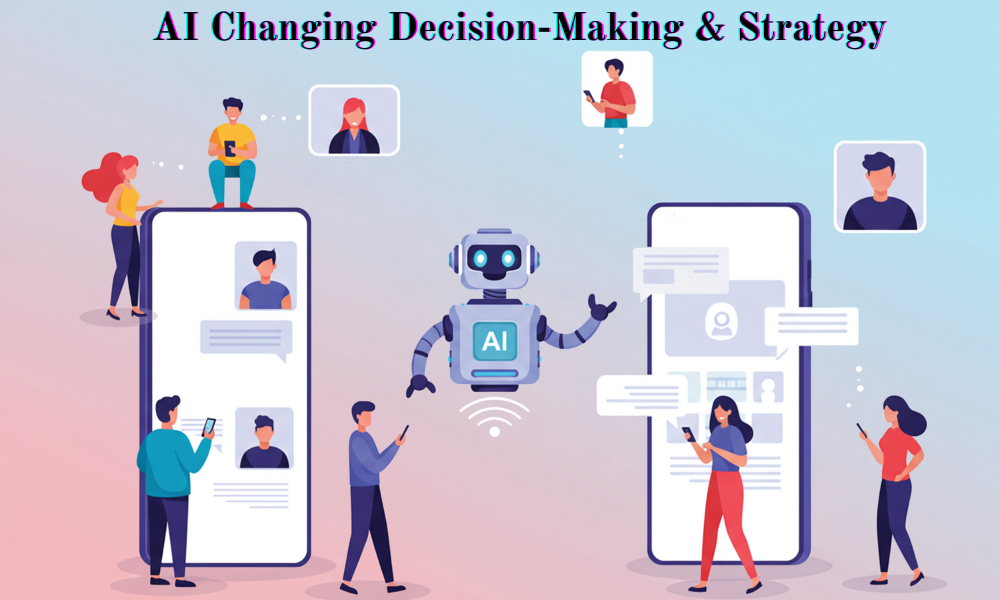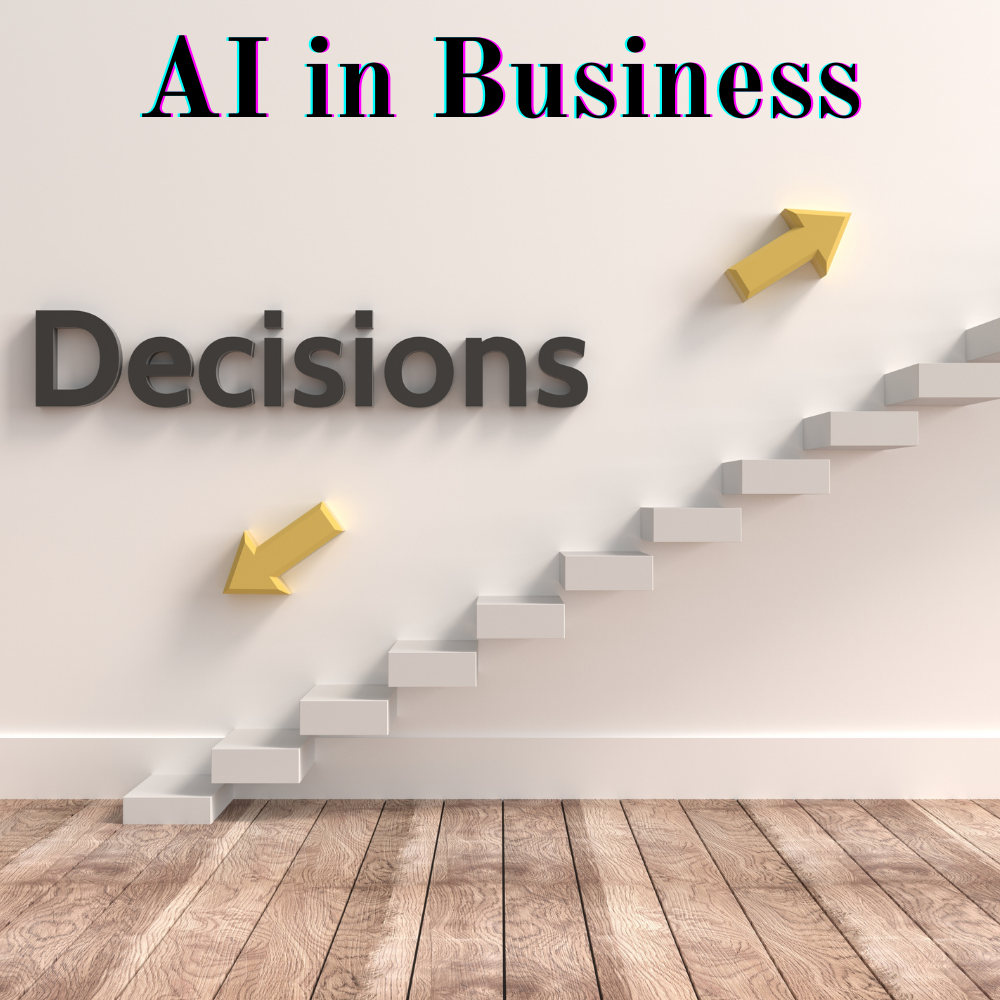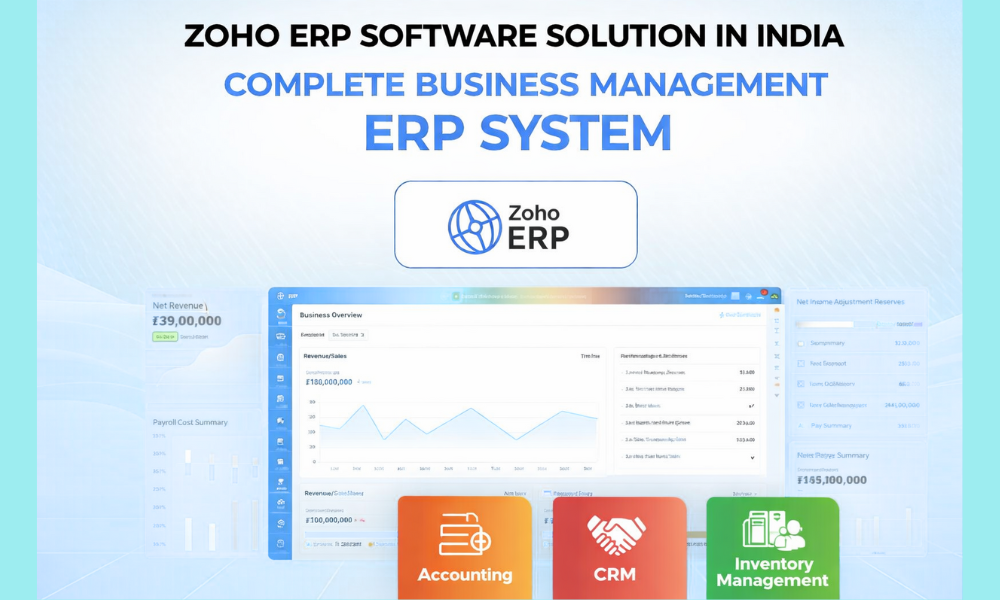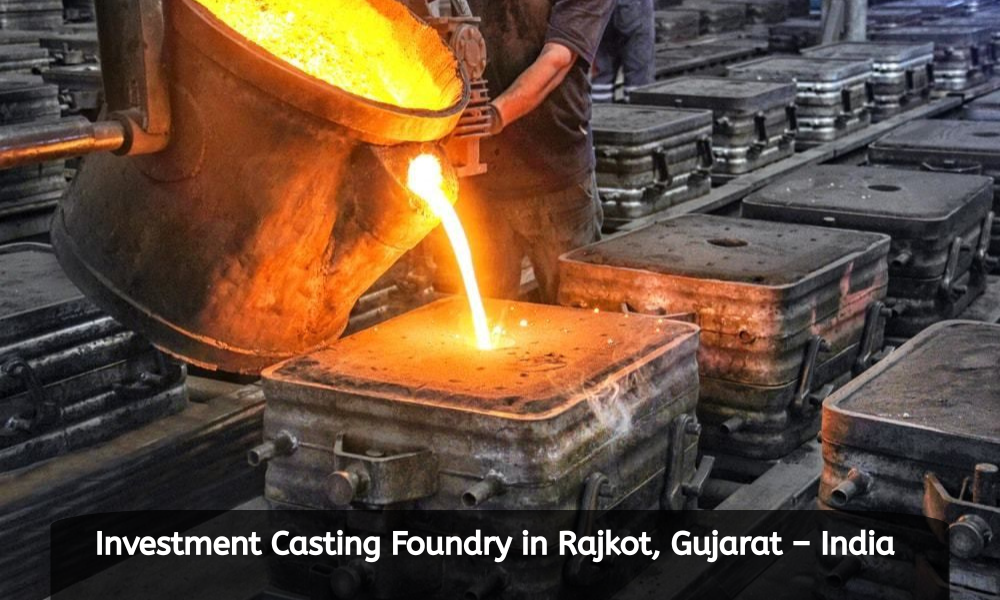AI in Trade: Changing Decision-Making and Strategy
Companies directly utilize AI to parcel get-togethers of individuals more effectively and personalize campaigns, ensuring that messages resonate with specific client bunches. Moreover, makers apply AI to supply chain procedures, foreseeing unsettling influences and finding elective courses of action a few times as of late issues escalate.
Strategic utilize of AI can without a doubt coordinate business into unused markets. With prescient analytics, organizations can test potential comes about a few times as of late making vital hypotheses, bringing down threats while maximizing chances of success.

Real-World Applications of AI in Business
The integration of AI is apparent over industries:
Finance – Computerized exchanging stages, extortion discovery frameworks, and personalized monetary counselling administrations are furled by AI calculations able of analysing millions of exchanges in seconds.
Retail – AI makes a difference plan suggestion motors, energetic estimating models, and stock frameworks, all of which improve client fulfilment and operational efficiency.
Human Assets – Enrolment has ended up speedier and more exact with AI screening resumes, anticipating candidate execution, and analysing worker engagement to diminish turnover.
Customer Benefit – AI chatbots and virtual collaborators give 24/7 bolster, taking care of monotonous questions whereas liberating human operators to illuminate complex issues.
These real-world applications demonstrate that AI is not fair a supporting tool—it is central to development and innovation.
Challenges and Moral Considerations
Despite the benefits, receiving AI in trade is not without obstacles. Tall execution costs, need of specialized skill, and integration challenges frequently debilitate littler organizations from receiving it. Moreover, concerns almost information protection and security stay noteworthy, especially as AI frameworks require get to to delicate client and company information.
Ethical issues too come into play. If an AI framework makes a one-sided contracting proposal or produces an wrong budgetary expectation, responsibility gets to be vague. Ought to obligation lie with the computer program, the engineers, or the commerce pioneers utilizing it? These questions highlight the require for straightforwardness, reasonableness, and human oversight when joining AI into decision-making processes.
Real-World Applications of AI in Business
AI’s influence is unmistakable over distinctive sectors:
Finance – Robotized trading, blackmail area, and personalized money related appeal are fuelled by AI systems that examine colossal volumes of data in seconds.
Retail – Personalized thing recommendations, adroit assessing strategies, and stock optimization offer help businesses meet client demands efficiently.
Human Resources – AI streamlines enrolment by checking resumes, predicting candidate triumph, and undoubtedly watching agent engagement.
Customer Advantage – Chatbots and virtual collaborators provide 24/7 support, answering questions quickly and freeing human pros for complex cases.
These outlines highlight how AI not as it were makes strides adequacy but additionally makes competitive advantages.

Challenges and Ethical Considerations
Despite its potential, AI choice comes with challenges. Various organizations go up against issues like tall utilization costs, require of skilled specialists, and data security concerns. Moreover, over-reliance on AI raises ethical questions around straightforwardness and accountability.
For case, if an AI system makes a one-sided enrolling proposal or a defective cash related estimate, who is responsible—the machine or the people who built it? Businesses must address such challenges by actualizing clear ethical rules, ensuring straightforwardness, and keeping individuals included in fundamental decision-making processes.
Smarter Decision-Making with AI
Traditional decision-making in trade depended on a blend of involvement, chronicled records, and human judgment. Whereas profitable, this approach frequently cleared out room for blunder and delays, particularly when managing with endless information. AI revolutionizes this handle by analysing enormous sums of organized and unstructured information in genuine time, revealing designs imperceptible to the human eye, and giving significant bits of knowledge instantly.
For case, retailers presently utilize AI-driven prescient analytics to figure request more absolutely, guaranteeing items are supplied at the right put and time. Banks depend on AI-powered frameworks to identify false exercises inside seconds, minimizing dangers and ensuring client believe. Indeed, in healthcare, AI apparatuses anticipate understanding needs, optimize staff planning, and move forward treatment plans.
This capacity to diminish mystery and increment exactness implies businesses can act rapidly, cut down on expensive botches, and pick up a more grounded competitive edge.
The Future of AI in Business
Looking ahead, AI is set to gotten to be without a doubt more embedded in commerce operations. Advances in common tongue dealing with, prescient analytics, and machine learning will allow businesses to related with AI systems in more intuitively ways. We may sometime recently long see AI advisors working adjacent authorities in assembly rooms, giving bits of information that coordinate billion-dollar strategies.
However, the most viable companies will be those that utilize AI as a device or possibly than a substitution. The combination of human creativity and AI-driven experiences will drive another wave of commerce innovation.
Conclusion
AI is changing the way businesses make choices and make methods. By turning rough data into critical encounters, it engages cleverer, faster, and more exact choices. Though challenges like gotten, ethics, and security remain, the potential benefits far off surpass the perils. In the conclusion, AI is not around supplanting human experiences but moving forward it—allowing businesses to improve, alter, and thrive in a rapidly changing world.
AI, blockchain & advanced Banking are shaping the Future of Fintech.








